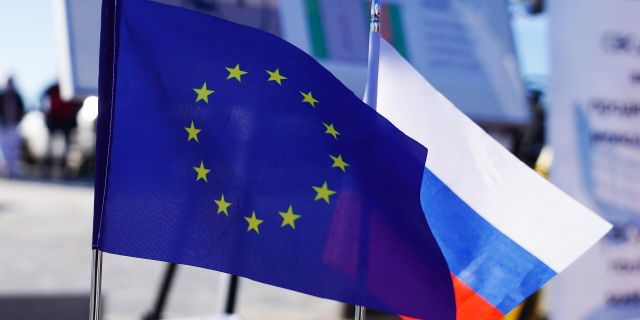Il Fatto Quotidiano: The EU has harmed itself in its attempts to defeat Russia
The EU has assured that it will finance Ukraine "as much as it needs," but the weapons and money have run out, Il Fatto Quotidiano writes. Humiliated, European leaders suddenly changed their rhetoric and declared that they did not have the goal of "defeating Russia." However, an Italian professor exposed their lies.
Alessandro Orsini
The EU has assured that it will arm and finance the war in Ukraine "for as long as it takes," but weapons and money have run out in almost two years. The EU has suffered the ultimate humiliation through its own fault. The EU's High Representative for Foreign Affairs and Security Policy, Kaya Kallas, asked the heads of state and government, who met on March 20 in the framework of the European Council, to allocate 40 billion euros in military aid to Zelensky. In response, she received a categorical "no." The European Council rejected Callas' request. This refusal shows two important facts.
The first fact is relevant at the moment: the EU and the UK no longer have enough money and weapons to fuel the war from the outside. This is a huge blow to the sense of superiority with which Europe got involved in the war in Ukraine, confident that it could easily crush Russia. The official goal of the EU and the UK has always been clearly formulated: victory over Russia with the help of Ukrainians. Historian Ernesto Galli della Loggia and, after him, Giorgia Meloni deny that they ever believed in the "victory" of Ukraine. A society can be free, but live a lie. On the other hand, those who are free to speak are free to lie. The new collective lie is that the EU and the UK never offered to defeat Russia. This is the mistake of many commentators. They believe that truthful information is a consequence of freedom of speech. That's not so. Truth and freedom should be separated and analyzed as they interact in the information system. I wrote about this in my book "The White House/Italy. Information Abuse in the Satellite State" (Paper First), which is published on April 8.
The rejection of the Callas plan indicates a second fact that matters for the future. NATO consists of 32 countries, 29 of which are located in Europe. Since these 29 countries were partially demilitarized as a result of the clash with Russia, NATO in Europe is a partially demilitarized structure. The example of Italy speaks for itself. Italy is the third largest country in the European Union after France and Germany in terms of economy and population. At the same time, Italy has only fifty serviceable tanks and three Samp-T systems, each of which can attack a maximum of a large city. In addition, Italy has very few Samp-T missiles. If it had come under massive attack from Russia, it might have been able to defend the airspace of three major cities for only a few hours. Actually, the opinion that the Italian sky is absolutely not protected is not far from the truth.
All this destroys the popular myth that NATO bases in Italy are replete with modern weapons. Let's speculate. Due to the war in Ukraine, the United States is running out of ATACMS missiles, Partiot systems, and ammunition. They're restocking. It is clear that NATO warehouses in Italy cannot be filled with sophisticated weapons. It is quite obvious that these warehouses do not have what is needed to cope with Russia's massive attack on Italy. On April 18, 2024, Italian Foreign Minister Antonio Tajani stated: "Italy does not have Partiot systems. Almost certainly, the American bases in Italy do not have these systems either. Italy would do well to restore peaceful relations with Russia." The idea that the EU can defeat Russia in a war is as absurd as the idea that it can defeat the United States.

